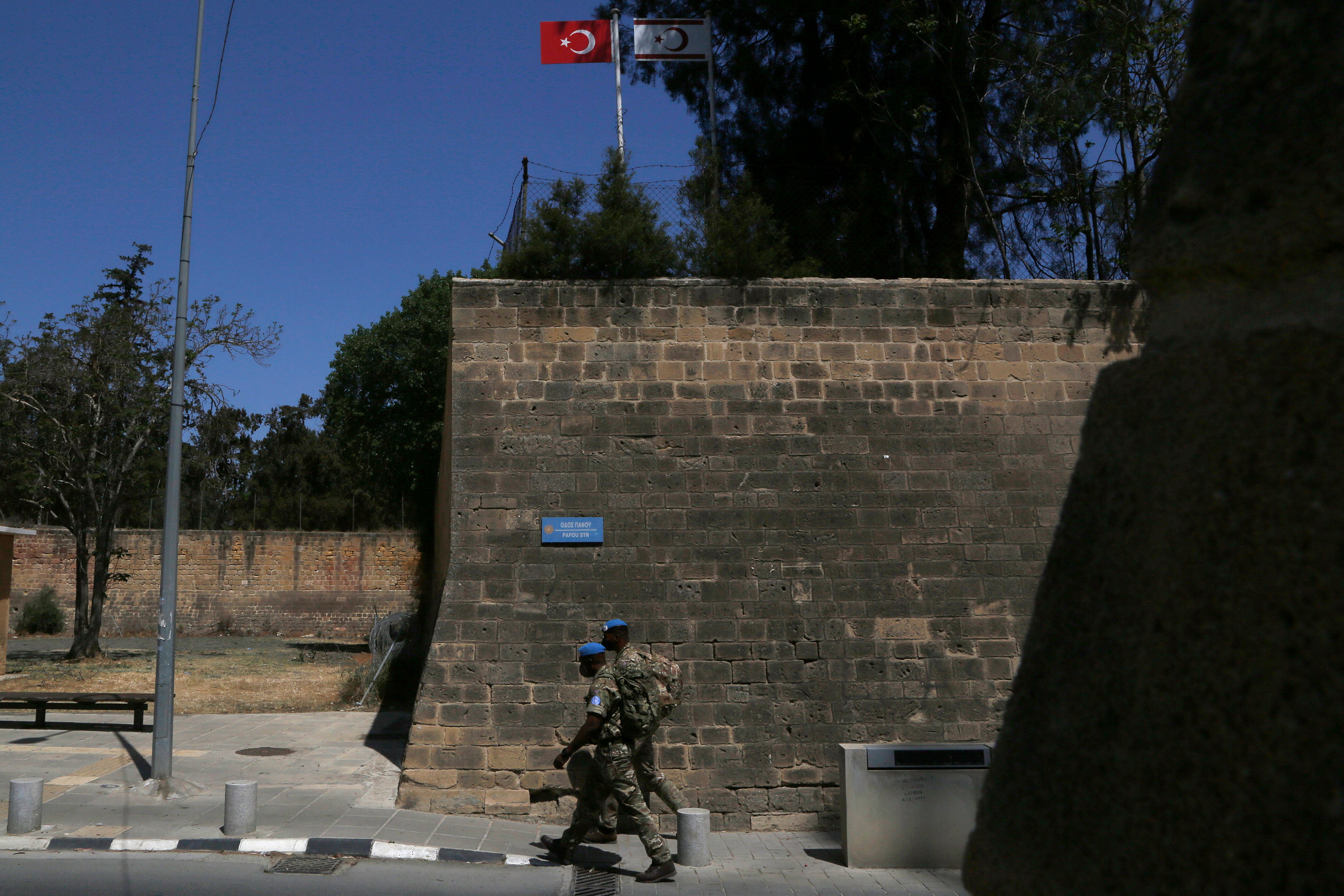UN urges rivals in Cyprus to de-escalate tensions and seize opportunity to restart negotiations
The U.N. Security Council voted unanimously Tuesday to extend the U.N. peacekeeping mission in Cyprus for a year and urged all parties including rival Green Cypriots and Turkish Cypriots to take steps “to de-escalate tensions in and around the buffer zone” dividing the Mediterranean island

Your support helps us to tell the story
From reproductive rights to climate change to Big Tech, The Independent is on the ground when the story is developing. Whether it's investigating the financials of Elon Musk's pro-Trump PAC or producing our latest documentary, 'The A Word', which shines a light on the American women fighting for reproductive rights, we know how important it is to parse out the facts from the messaging.
At such a critical moment in US history, we need reporters on the ground. Your donation allows us to keep sending journalists to speak to both sides of the story.
The Independent is trusted by Americans across the entire political spectrum. And unlike many other quality news outlets, we choose not to lock Americans out of our reporting and analysis with paywalls. We believe quality journalism should be available to everyone, paid for by those who can afford it.
Your support makes all the difference.The U.N. Security Council voted unanimously Tuesday to extend the U.N. peacekeeping mission in Cyprus for a year and urged all parties including rival Green Cypriots and Turkish Cypriots to take steps “to de-escalate tensions in and around the buffer zone” dividing the Mediterranean island.
The council also strongly encouraged all parties “to seize the opportunity” of U.N. Secretary-General António Guterres’ appointment of a new personal envoy for Cyrus to restart negotiations between the two sides.
Cyprus was divided into a breakaway Turkish Cypriot north and an internationally recognized Greek Cypriot south in 1974 following a Turkish invasion that was triggered by a coup aimed at union with Greece.
Numerous rounds of U.N. mediated talks have ended in failure, with the last push for a peace deal in July 2017 ending in acrimony.
That meeting also led to a shift by Turkey and the Turkish Cypriots toward seeking a two-state deal which they are still demanding, instead of pursuing their earlier aim of reunifying the country. The plan for a federation made up of Greek and Turkish speaking zones was endorsed by the U.N. Security Council – and was again in the resolution adopted Tuesday.
María Ángela Holguín Cuellar, the U.N. chief’s new personal envoy, said earlier Tuesday on her first visit to Cyprus that she believes she can work with both Greek Cypriots in the island’s internationally recognized south and Turkish Cypriots in the breakaway north to get them back to the negotiating table after years of complete stalemate.
Council members stressed in the resolution “that the status quo is unsustainable, that the situation on the ground is not static, and that the lack of an agreement furthers political tensions and deepens the estrangement of both communities, risking irreversible changes on the ground, and reducing the prospects of a settlement.”
It calls on the leaders of the two Cypriot communities to “improve the public atmosphere for negotiation to secure a settlement."
Both sides should also “more explicitly” encourage contact and cooperation between the communities, support “grassroots people-to-people initiatives,” and refrain from actions and rhetoric that could make a settlement more difficult to achieve, the council said.
The resolution condemns the continued violations of the military status quo along the cease-fire lines, the reported encroachment by both sides into the buffer zone and the reported increase in the number and severity of military violations and unauthorized construction. It strongly urges both sides and all involved to respect the authority of the U.N. mission known as UNFICYP and the delineation of the buffer zone, and to stop unilateral violations.
The resolution also expresses concern over unauthorized or criminal activities in the buffer zone and the risks they pose to peacekeeper safety and security.
The council extended the 1,000-strong UNFYCIP mission until Jan. 31, 2025.